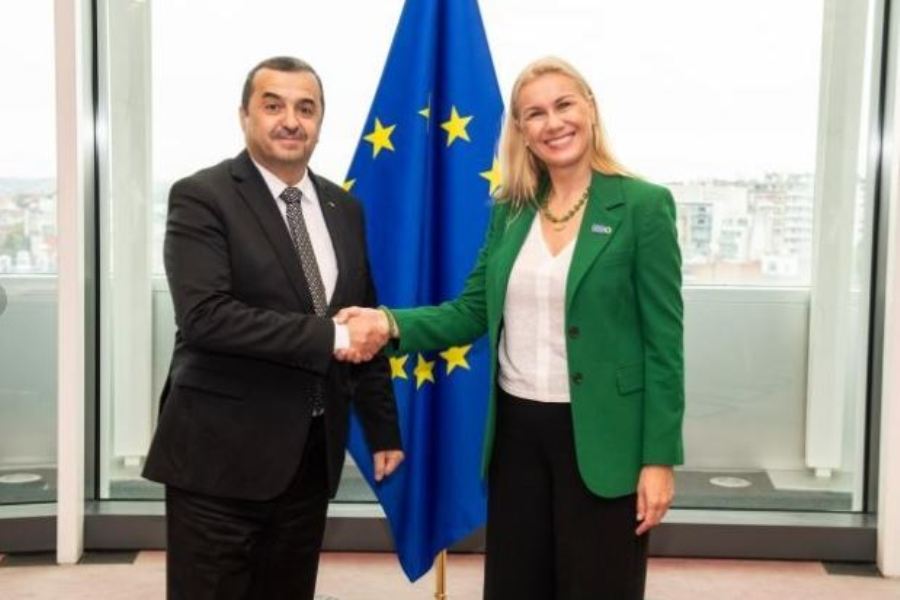Kadri Simson, the EU Commissioner for Energy and Algeria’s Minister for Energy and Mines, Mohamed Arkab held a bilateral meeting on ways and means of strengthening bilateral cooperation in the field of energy.
This fifth annual meeting of the high-level political dialogue on energy between the European Union and Algeria is part of the implementation of the Memorandum of Understanding (MoU) on the strategic partnership between Algeria and the EU in the field of energy, signed in Algiers in 2013, which is aimed at developing and strengthening energy relations while respecting the balance of interests between the two parties.
This fifth meeting reviewed the state of play of bilateral cooperation and reiterated the common willingness to work towards strengthening it through further exchanges within the framework of the sectoral working group and the two expert groups on natural gas and electricity, new and renewable energies and energy efficiency set up in 2015.
Thus, both sides welcomed the progress made in the implementation of the partnership, including regular meetings between experts, the organization of joint activities that contributed to a better mutual understanding on issues of common interest such as natural gas, renewable hydrogen, the reduction of greenhouse gases in the energy sector, the development of renewable energy, the promotion of energy efficiency.
The importance of Algeria as a strategic and reliable partner in the EU energy supply of natural gas has been emphasized and the evolution of European demand and supplies by Algeria has been discussed.
The two sides discussed the Euro-Algerian cooperation on reducing methane emissions in the oil and gas industry and agreed to work together to promote the recovery and commercialization of methane that would otherwise be dispersed in the atmosphere. This will yield mutual benefits in terms of climate change mitigation, better profitability of the Algerian gas industry and increased potential for additional supply to the European Union.
Prospects for cooperation in the field of renewable hydrogen were also discussed. The European Union’s efforts to increase and accelerate the deployment of renewable energy were highlighted, with hydrogen as a priority area to boost the green transition. The recently adopted Algerian national strategy for the development of hydrogen was also highlighted. Commissioner Simson and Minister Arkab agreed that there is an excellent potential for a fruitful and mutually beneficial partnership on renewable hydrogen and committed to step up the cooperation in this field.
The two sides agreed to further progress on methane emissions and hydrogen by facilitating and promoting pilot industrial projects, and through the organization of workshops that will bring together European and Algerian public and private stakeholders. In this perspective they expressed their willingness to explore the possibility to establish an agreement in the hydrogen cooperation in order to identify concrete actions and projects.
The two parties also plan to extend their cooperation in the exploration, production and use of rare materials, notably as inputs into the installation component industry for the production or storage of renewable energy.
The two sides agreed to accelerate discussions on the cooperation in the electricity area especially the interconnection between the European’s and Algerian’s electrical networks and cross-border exchanges.
They also agreed to discuss the possibility of creating industrial partnerships for the manufacturing of equipment, especially for the renewables market.
Building on the very successful results of the Taka Nadifa (clean energy) project, the EU together with its Algerian counterparts have designed a €15 million worth cooperation program underpinned by the priorities identified through the Dialogue. This program aims to support the development of renewable energy projects, the integration of renewables into the system, including through new technologies, and electrical interconnection, the development of a green hydrogen economy, the increase of renewables in energy production and transport, as well as energy efficiency in buildings and public companies.

